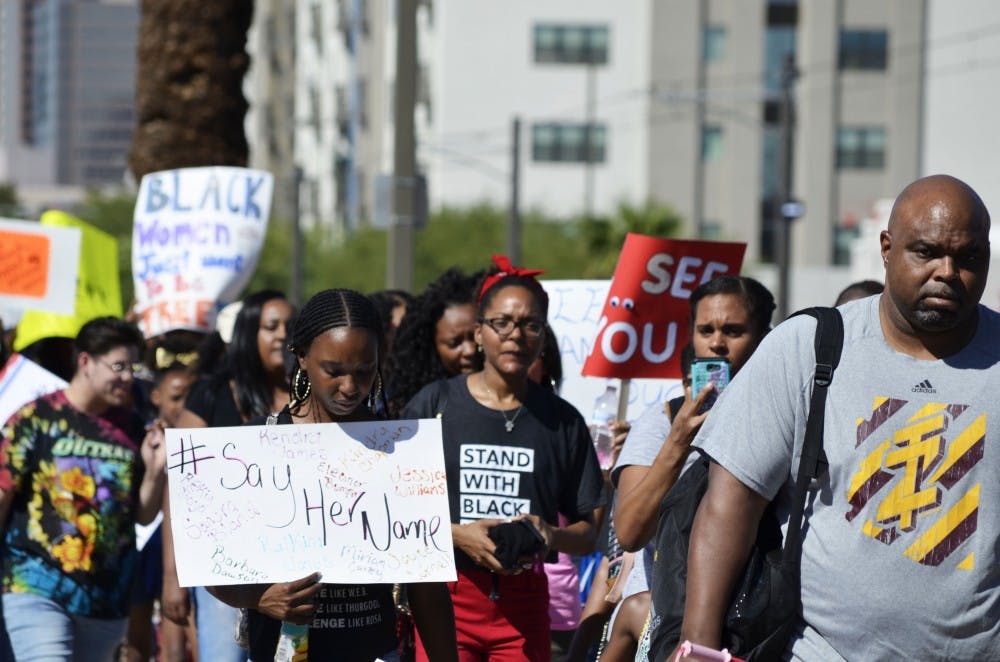Roughly 300 people assembled in Eastlake Park in Phoenix on Saturday for the March for Black Women. The event was held in conjunction with sister marches in Chicago, Washington D.C. and Miami, Florida.
The march was part of a greater effort to bring the female African American community together in order to enact change. Speakers addressed perceived problems in the African American community like patriarchy, a lack of support for LGBTQIA African Americans and colorism.
Rep. Geraldine Peten (D-Gila Bend), newly appointed to the State House of Representatives, spoke at the event. She said that she would focus her attention in the House on education issues, and that she wanted the community to educate more pupils than it incarcerates.
Peten encouraged those attending to support local businesses and community-wide causes.
“We certainly need your continued support and continued power to make good things happen," Peten said. "We can only do that if you share with us what your concerns are, your issues are."
Monica Jones, a 2015 ASU alumna, said at the event that some people encouraged her parents to kick her out and disown her because she is transgender. Instead, her parents stood by her. She criticized the black community for its role in violence against African American LGBTQ youth and African American transgender women.
“Its very important that we talk about this in our own community," Jones said. "Sometimes our own community is the perpetrators of the violence against black trans women and queer people.”
Sarra Tekola, a sustainability masters student, was one of the lead speakers at Saturday’s event. At one point Tekola called Phoenix an “aggressively white, conservative hell house."
“We are marching in Phoenix because Phoenix is the belly of the beast," Tekola said. "It’s the front lines of so many struggles, from the border wall, to white militas and prison labor. Phoenix has the second highest rate of police murder of civilians in the country, and worse, a lot of people in Phoenix will try to justify this state violence.”
Tekola pointed to experiences at ASU that influenced her view of Arizona. She said that at ASU the Black African Coalition requires a business dress code. Tekola said she was told the dress code would deter people from complaining about large members of African Americans congregating.
“They say there isn’t a problem with race on campus, but black people can’t get together unless we look right,” Tekola said after the event.
After the march and speeches ended the focus turned to community building. Inside the Eastlake Park Community Center there was a children’s play area and workshops for African American mothers. Participants were encouraged to visit booths set up by local businesses and organizers, and free HIV testing was offered.
“If we stand together, no one can stop us. I want you to connect with us today," Tekola said. "There are so many people here right now doing the important work already in our community, they just need you to join them. This is not just a moment, but the start of a movement in Phoenix.”
Reach the reporter at brookehanrahanreports@gmail.com and follow @brookehanrahan1 on Twitter.
Like The State Press on Facebook and follow @statepress on Twitter.




